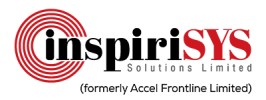
i
Opcito
Technologies
Filter interviews by
Opcito Technologies Interview Questions and Answers
6 Interview questions
I deploy to k8s cluster using CI/CD pipelines and kubectl commands.
Use CI/CD pipelines to automate the deployment process
Leverage kubectl commands to interact with the Kubernetes cluster
Ensure proper configuration and version control for smooth deployments
Anti affinity is a concept in cloud computing where related resources are intentionally placed on separate physical hardware to increase fault tolerance.
Anti affinity ensures that related resources, such as virtual machines or containers, are not placed on the same physical hardware to reduce the impact of hardware failures.
It is commonly used in distributed systems to improve availability and resilience.
For examp...
Designing a CI/CD pipeline involves defining stages, tools, triggers, and integrations for automated software delivery.
Define stages for build, test, deploy, and release
Select appropriate tools for each stage (e.g. Jenkins, GitLab CI, Travis CI)
Set up triggers for automatic pipeline execution (e.g. code commit, pull request)
Integrate with version control, testing frameworks, and deployment platforms
Implement secur...
Secrets in k8s are used to store sensitive information like passwords, API keys, and tokens securely.
Create secrets using kubectl create secret command
Mount secrets as volumes in pods
Access secrets in pods using environment variables or files
Rotate secrets regularly for security purposes
Pod affinity is a Kubernetes feature that allows you to influence the scheduling of pods based on the presence of other pods.
Pod affinity can be used to ensure that pods are scheduled on the same node or in close proximity to other pods.
Pod affinity can be defined at the pod level or at the node level.
Examples of pod affinity include spreading pods across different availability zones or ensuring that pods with spe...
Monolith is a single large application while microservices is a collection of small independent services.
Monolith is a traditional approach where the entire application is built as a single unit
Microservices is a modern approach where the application is divided into small independent services
Monolith is tightly coupled and difficult to scale
Microservices are loosely coupled and easy to scale
Monolith has a single p...
Opcito Technologies Interview Experiences
7 interviews found
(5 Questions)
- Q1. How you design cicd pipeline
- Ans.
Designing a CI/CD pipeline involves defining stages, tools, triggers, and integrations for automated software delivery.
Define stages for build, test, deploy, and release
Select appropriate tools for each stage (e.g. Jenkins, GitLab CI, Travis CI)
Set up triggers for automatic pipeline execution (e.g. code commit, pull request)
Integrate with version control, testing frameworks, and deployment platforms
Implement security m...
- Q2. How you deploy to k8s cluster
- Ans.
I deploy to k8s cluster using CI/CD pipelines and kubectl commands.
Use CI/CD pipelines to automate the deployment process
Leverage kubectl commands to interact with the Kubernetes cluster
Ensure proper configuration and version control for smooth deployments
- Q3. How do you use secrets in k8s
- Ans.
Secrets in k8s are used to store sensitive information like passwords, API keys, and tokens securely.
Create secrets using kubectl create secret command
Mount secrets as volumes in pods
Access secrets in pods using environment variables or files
Rotate secrets regularly for security purposes
- Q4. What is pod affinity
- Ans.
Pod affinity is a Kubernetes feature that allows you to influence the scheduling of pods based on the presence of other pods.
Pod affinity can be used to ensure that pods are scheduled on the same node or in close proximity to other pods.
Pod affinity can be defined at the pod level or at the node level.
Examples of pod affinity include spreading pods across different availability zones or ensuring that pods with specific...
- Q5. What is anti affinity
- Ans.
Anti affinity is a concept in cloud computing where related resources are intentionally placed on separate physical hardware to increase fault tolerance.
Anti affinity ensures that related resources, such as virtual machines or containers, are not placed on the same physical hardware to reduce the impact of hardware failures.
It is commonly used in distributed systems to improve availability and resilience.
For example, i...
I appeared for an interview before May 2023.
(1 Question)
- Q1. Kubernetes, ci cd, terraform
(1 Question)
- Q1. Asked about the Golang fundamentals, and given 2-3 problem statements to solve in Golang
(1 Question)
- Q1. In-depth concept discussion, coding round
(1 Question)
- Q1. Salary related discussion
Interview Preparation Tips
I applied via Job Portal and was interviewed before Feb 2023. There was 1 interview round.
(1 Question)
- Q1. What is tough challenge you faced as a tester?
Interview Questionnaire
1 Question
- Q1. JAVA topics like basic Java definitions, Oops concepts, Access specifiers, Collections, Exceptions, Threads, Serialization etc., with examples to make you get ready perfectly to face any JAVA interview co...
Interview Preparation Tips
- I didn't proceed further because I did not like the company culture
- HR head was very arrogant and egoistic
- she doesn't understand the technology and was just Mere showoff
-was very rude in her approach and overall discussion
- I couldn't get confidence on overall culture of the company and decided to not pursue it further
Advice to the management -
Please have some standard and decent people around. Your HR represents your company and clearly they are !!!!
I applied via Company Website and was interviewed in Mar 2019. There were 4 interview rounds.
Interview Questionnaire
1 Question
- Q1. What is the difference between monolith and microservices?
- Ans.
Monolith is a single large application while microservices is a collection of small independent services.
Monolith is a traditional approach where the entire application is built as a single unit
Microservices is a modern approach where the application is divided into small independent services
Monolith is tightly coupled and difficult to scale
Microservices are loosely coupled and easy to scale
Monolith has a single point ...
Interview Preparation Tips
The company all in all looks good, the stickers,the interiors and the overall ambiance is great.
Skills evaluated in this interview
I applied via Naukri.com and was interviewed before Sep 2018. There were 3 interview rounds.
Interview Questionnaire
2 Questions
- Q1. Basic questions
- Q2. Interview has no idea what to ask. Just a random bunch of questions
Interview Preparation Tips
Top trending discussions






Interview questions from similar companies

I appeared for an interview before Jun 2016.
Interview Questionnaire
1 Question
- Q1. Java related questions on Oops concept and Multithreading
Interview Preparation Tips
Experience: Simple aptitude and reasoning questions little java based programming
Tips: Basic programming knowledge and good aptitude
Duration: 1 hour
Total Questions: 60
Round: Technical Interview
Experience: Normal questions on Java, basic programming questions like reverse no. , String related and logical coding
Tips: What u mentioned on your resume go through that only, they will not ask apart from your resume
Skills: How Well You Are Able To Communicate What You Wanted To Tell, Programming
College Name: SRCEM

I applied via Company Website and was interviewed in Nov 2020. There were 5 interview rounds.
Interview Questionnaire
1 Question
- Q1. Tell me about yourself
- Ans.
I'm a passionate software engineer with a strong background in full-stack development and a love for solving complex problems.
Graduated with a degree in Computer Science from XYZ University.
Worked at ABC Corp, where I developed a web application that improved user engagement by 30%.
Proficient in languages like JavaScript, Python, and Java, with experience in frameworks like React and Django.
Enjoy collaborating in agile...
Interview Preparation Tips

I appeared for an interview in Nov 2024.
(3 Questions)
- Q1. Where do you live?
- Q2. Family background
- Q3. Introduction
Easy to medium level questions
Questions on recursion, string, array and patterns
Opcito Technologies Interview FAQs
Tell us how to improve this page.
Opcito Technologies Interviews By Designations
- Opcito Technologies Software Engineer Interview Questions
- Opcito Technologies Senior Quality Assurance Engineer 2 Interview Questions
- Opcito Technologies Devops Engineer Interview Questions
- Opcito Technologies Senior Software Programmer Interview Questions
- Opcito Technologies Senior Devops Engineer Interview Questions
- Opcito Technologies Senior Java Developer Interview Questions
Interview Questions for Popular Designations
Overall Interview Experience Rating
based on 5 interview experiences
Difficulty level
Duration
Interview Questions from Similar Companies
Opcito Technologies Reviews and Ratings
based on 57 reviews
Rating in categories
|
Software Engineer
41
salaries
| ₹3.5 L/yr - ₹16.4 L/yr |
|
Senior Software Engineer
18
salaries
| ₹14.2 L/yr - ₹25.3 L/yr |
|
Devops Engineer
16
salaries
| ₹4.6 L/yr - ₹11.3 L/yr |
|
Senior Devops Engineer
15
salaries
| ₹16 L/yr - ₹30.2 L/yr |
|
Software Developer
12
salaries
| ₹6.7 L/yr - ₹22 L/yr |

HCL Infosystems

Accel Frontline

DynPro

ClaySys
- Home >
- Interviews >
- Opcito Technologies Interview Questions










